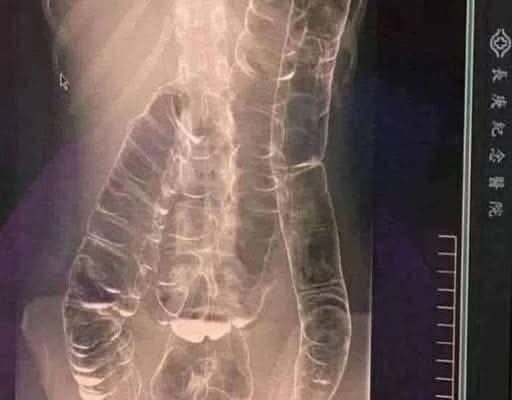Chronic Constipation: A Silent Danger That Could Threaten Your Life – Expert Insights on Prevention and Treatment
While constipation is often dismissed as a minor digestive issue, chronic constipation can lead to severe health complications if left untreated. One alarming real-life case highlights the life-threatening risks of poor colon health—and why addressing symptoms early is essential.
A young woman who suffered from chronic constipation for years faced a medical emergency after going over two weeks without a bowel movement. Her condition escalated rapidly, forcing her to seek emergency gastrointestinal care. What doctors discovered was shocking: her colon had become severely distended, expanding so dramatically that it pushed into her upper abdomen, dangerously close to her heart.
Why You Should Never Ignore Constipation
When waste remains in the colon for extended periods due to poor digestive function, it causes bloating, pain, and pressure. Over time, the colon stretches, losing its ability to contract properly—this condition, known as colonic inertia, severely impacts bowel movement frequency and can lead to bowel obstruction or even intestinal necrosis.
A distended colon not only impairs digestion but also heightens the risk of toxic waste reabsorption. When stool stagnates, harmful toxins and bacteria can enter the bloodstream, triggering symptoms like:
-
Fatigue
-
Skin breakouts
-
Bad breath
-
Immune suppression
-
Brain fog
This process is known as autointoxication, and it’s a major reason why many turn to gut detox supplements or probiotic treatments for relief.
Hidden Dangers: Hemorrhoids, Fissures, and Cancer Risks
Chronic straining during bowel movements increases the risk of hemorrhoids and anal fissures, both of which can cause bleeding and intense pain. In more severe cases, long-term constipation can result in a complete bowel blockage, requiring emergency surgery to prevent tissue death.
More alarmingly, several studies have drawn a connection between chronic constipation and an increased risk of colorectal cancer. Prolonged contact between the colon and carcinogenic waste can lead to inflammation, polyps, and abnormal cell growth. Early detection and prevention through improved digestive health practices are key.
Thankfully, there are proven, safe, and effective strategies to relieve constipation and improve colon health. Here are some expert-backed recommendations:
1. Increase Fiber Intake
A high-fiber diet is one of the most effective natural remedies for constipation. Include:
-
Whole grains (quinoa, oats, brown rice)
-
Fiber-rich fruits (apples, pears, berries)
-
Vegetables (broccoli, leafy greens)
-
Chia seeds, flaxseeds, and legumes
These not only add bulk to stool but also feed the beneficial bacteria in your gut, enhancing your microbiome health.
2. Stay Hydrated
Adequate hydration is essential. Aim for 2–3 liters of water daily to keep stool soft and easy to pass. Drinking warm lemon water in the morning can stimulate digestion and offer a natural detox boost.
3. Use Digestive Health Supplements
When diet alone isn’t enough, consider natural digestive supplements such as:
-
Magnesium citrate – promotes bowel relaxation
-
Psyllium husk – a powerful natural fiber source
-
Probiotic supplements – support gut flora balance
-
Aloe vera juice – soothes and lubricates the intestinal tract
These are popular over-the-counter solutions that can support long-term bowel regularity.
4. Exercise Regularly
Movement is vital. Just 15–30 minutes of walking or light yoga daily can stimulate peristalsis (the muscular movement of the intestines). Lack of activity is a leading cause of slow digestion and bloating.
5. Establish a Bathroom Routine
Creating a consistent schedule trains your body to eliminate waste more effectively. Aim for a bowel movement shortly after meals, especially breakfast, when your digestive system is naturally most active.
When to Seek Medical Help
While natural constipation relief methods can be effective, don’t ignore signs that require immediate attention. Seek gastroenterological evaluation if you experience:
-
No bowel movements for over 7 days
-
Severe abdominal pain or bloating
-
Blood in stool
-
Vomiting or nausea
-
Unexplained weight loss
Early intervention can prevent more serious outcomes like intestinal blockages or the need for invasive procedures.
The Bottom Line: Don’t Let Constipation Become a Chronic Health Threat
Ignoring constipation can put your health at serious risk—from toxin buildup to colorectal cancer. Making proactive changes today with a high-fiber diet, hydration, exercise, and natural digestive support can dramatically reduce your risk of complications.
Invest in your long-term digestive wellness by listening to your body and seeking help when needed. Taking constipation seriously isn’t just about comfort—it’s about safeguarding your health and future.



